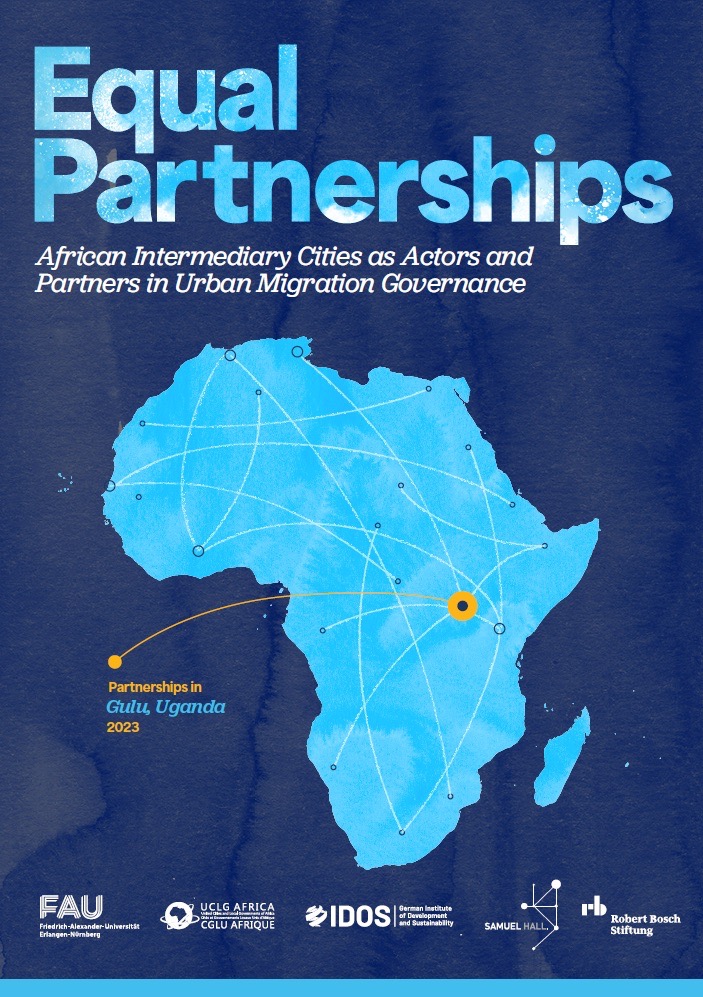Equal Partnerships – African Intermediary Cities as Actors and Partners in Urban Migration Governance
Partnerships in Gulu, Uganda
2023
Lasse Juhl Morthorst and Janina Stürner-Siovitz
Gulu is among Uganda’s fastest growing intermediary cities. With a city population of around 150,000 inhabitants and more than 275,000 persons living in the wider district, Gulu represents the largest urban center in the Northern Region of Uganda. Raised to official city status in 2020, Gulu functions as a cultural, educational, trade, and commercial hub for the wider Acholi region. Situated at a strategic crossroads, Gulu connects rural and urban areas in Northern Uganda, South Sudan, Kenya, the Democratic Republic of Congo, and the Central African Republic. Migration and (internal) displacement related to the past civil war, conflicts in the region, economic inequality, climate change and environmental degradation have played an important role in shaping Gulu city. Therefore, various actors address issues of human mobility in the city. To create an overview of activities, partnerships and cooperation gaps, the Equal Partnerships project developed participatory field research and organized a local workshop in July 2022 in cooperation with the city of Gulu. The stakeholder mapping shows that despite Uganda’s internationally lauded “open” refugee policy, the focus on refugee accommodation in rural settlements has rendered self-settled urban refugees highly invisible, thus limiting the agency of the local government, civil society, and international organizations aiming to support refugees in Gulu city. The case study situates Gulu in the national and regional migration context, presents the outcomes of the stakeholder mapping, identifies opportunities and challenges of cooperative action on migration and displacement, and concludes with concrete policy recommendations for multi-stakeholder action.
